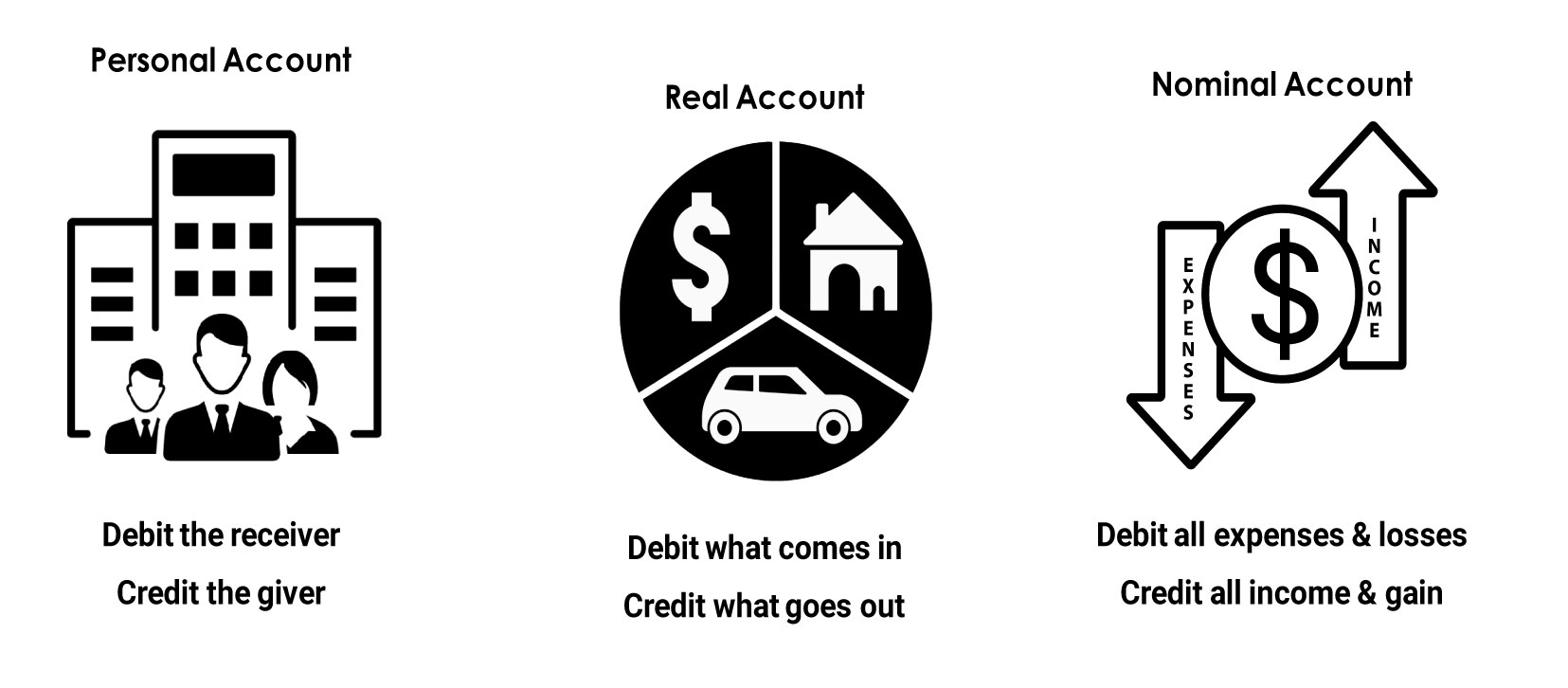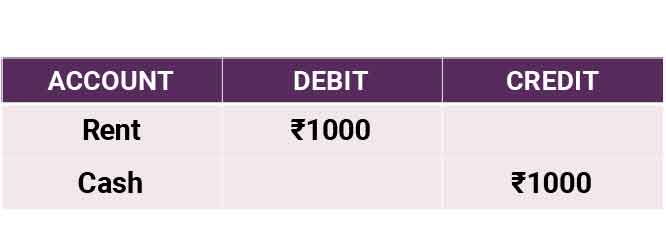Accounting Voucher
What is Vouchers
Every business ought to have transactions where their ultimate profit and loss bring up. So, managing the transactions smarter gives a boost to the organizations. As many organizations moved toward , the voucher is the primary online document used to record the transactions.
Example:a purchase invoice, a sales receipt, a petty cash docket, a bank interest statement.
Types of Accounting Vouchers:
- Payment Voucher
- Receipt Voucher
- Contra Voucher
- Journal Voucher
- Sales Voucher
- Purchase Voucher
- Credit Note Voucher
- Debit Note Voucher
Double entry system
Example: giving the benefit and the other receiving the benefit.
- A transaction has two-fold aspects.
- One account needs to be debited and the other is to be credited.
- Every debit must have its corresponding and equal credit.
Golden Rules

Basic Accounting Equation
| Assets = Liabilities + Owners Equity(capital). |
Credit & Debit rules

Example You paid rent (₹1000).

Example for accounting equation
Example sum
| Particulars | ₹ Rupees |
|---|---|
| Started business with cash | ₹ 1,00,000 |
| Borrowed loan from bank | ₹ 25,000 |
| Deposited cash into bank | ₹ 60,000 |
| Bought goods and paid by cheque | ₹ 10,000 |
| Cash withdrawn for personal use | ₹ 5,000 |
| Cash withdrawn from bank for office use | ₹ 3,000 |
Solution
| S.no | Assets | Liabilities | Capital | ||
| Stock | Cash | Bank | |||
| 1 | + 1,00,000 | + 1,00,000 | |||
| 2 | – 60,000 | + 60,000 | |||
| 3 | + 25,000 | + 25,000 | |||
| 4 | + 10,000 | – 10,000 | |||
| 5 | – 5,000 | – 5,000 | |||
| 6 | + 3,000 | – 3,000 | |||
| + 10,000 | + 38,000 | + 72,000 | + 25,000 | + 95,000 | |
| ₹ 1,20,000 | ₹ 1,20,000 |

No comments:
Post a Comment